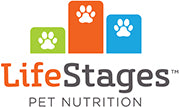
The Right Nutrition at the Right Time
Share
How Do Different Life Stages Impact The Dietary Needs Of Dogs
Did you know that your dog’s health greatly depends on a changing diet at various stages of their life? Yes, that’ true! Veterinary nutritionists all over the world are of the view that dogs have different nutritional needs at different stages of their life.
It is also true that your dog’s lifestyle will have an impact on their nutritional needs. Dog diet requirements for highly athletic or working dogs will be very different than for a much more sedentary dog… even if they are the same breed, age and size. We have broken down dog life stages into three fundamental categories in order to provide some basic guidance.
Puppy - The first life stage of a dog is puppy, a period when the young canine needs growth-food to support its initial growth and metabolism. Puppies require a larger quantity of food and need to eat smaller meals more frequently.
Feeding puppies for maximum growth is not advised. Therefore, free feeding dogs (leaving a bowl of food out for him to eat at his own discretion) is not recommended. Steady and consistent growth should be the objective as this builds a foundation for future dog health. Excessive feeding will not lead to a stronger, healthy dog. No matter how much you feed your dog, he will only grow as big as he is predetermined to grow.
Proper nutrition is the foundation for his growth, muscle and skeletal formation, immune system and brain function. It is often difficult to find the right balance of nutrients to meet these growth and development needs. Many are experiencing great success in using products like LifeStages’ Stage 1: Puppy and Adolescent formula.
Adult Dog - As your dog has entered the adult stage, you will want to consider switching to a diet supplemented with LifeStages Stage 2 Adult Formula with all the essential nutrients for optimal health, strength and protection. Adult dogs require enough calories to meet their energy requirements as well as to maintain and repair body tissue. They should be fed based on their size and activity level. You will also want to provide protection from the common health conditions that begin to plague adult dogs, like a dull coat, excessive shedding, inflammation, anxiety and allergies.
Senior Dog - Similarly, once your dog enters their golden years, you need to make sure to feed it with nutritional supplements that help them overcome common problems at this stage of life. The most common conditions our older dogs begin to face are issues relating to obesity, joint pain and cognitive decline. LifeStages’ Stage 3 Senior Formula is specifically designed by our Veterinarian and Pet Nutritionist to ensure your furry loved one receives the needed nutrients to maintain optimal health , mobility and vitality .
